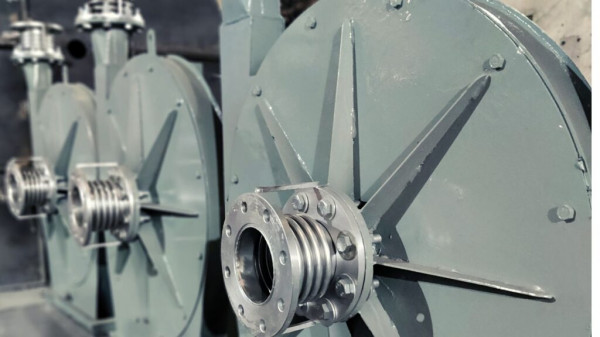Industrial Fans: A Key Element In Process Safety And Regulation Compliance

Industrial fans are an integral component of many manufacturing and industrial processes. Beyond their role in maintaining optimal temperature and ventilation, industrial fans play a crucial role in ensuring process safety and compliance with various regulations. This article delves into the significance of industrial fans in process safety and how they help businesses meet regulatory standards.
Ensuring Adequate Ventilation
One of the primary functions of industrial fans is to provide ventilation. In manufacturing and industrial settings, proper ventilation is essential to control air quality, temperature, and humidity levels. Neglecting airflow can cause dangerous gases, dust, and fumes to build up, endangering workers' health and possibly starting fires or blasts. Compliance with safety regulations, such as OSHA (Occupational Safety and Health Administration) standards, requires businesses to maintain adequate ventilation to protect employees and the environment.
Industrial fans help in achieving this by efficiently moving large volumes of air. By placing them in certain ways, you can make sure that dirty air goes out and clean air comes in. In doing so, industrial fans contribute to a safer work environment and help companies comply with ventilation requirements mandated by regulatory agencies.
Temperature Control For Hazardous Processes
Many industrial processes involve the generation of high temperatures, which can be hazardous if not controlled properly. Industrial fans, such as centrifugal fans and axial fans, are instrumental in regulating temperatures within industrial settings. They aid in dissipating heat generated during manufacturing processes and help maintain safe operating temperatures.
For instance, in chemical manufacturing, where exothermic reactions can produce excessive heat, industrial fans help prevent overheating and potential explosions. By following rules about temperature control, businesses can lower the chance of accidents and protect their workers and property.
Dust And Contaminant Control
In sectors like construction, mining, and manufacturing, the generation of dust and airborne contaminants is common. Inadequate control of these pollutants not only poses health risks but also leads to regulatory violations. Regulatory bodies like the Environmental Protection Agency put tight limits on how much particulate matter and pollution a business can emit. This makes compliance a very important issue for companies.
Industrial fans equipped with filtration systems, such as dust collectors and scrubbers, effectively capture and remove harmful particles from the air. By doing so, they help companies meet environmental regulations and avoid penalties for air quality violations. Moreover, reducing airborne contaminants improves overall workplace safety and protects employees from respiratory ailments.
Fire Prevention And Safety
In environments where flammable materials are present, fire safety is paramount. Industrial fans are used in fire safety devices to keep the air moving and keep flammable gases from building up. This airflow control plays a critical role in reducing the risk of fire and explosion in industrial settings.
National Fire Protection Association guidelines and local fire codes often mandate the installation of industrial fans as part of fire suppression and prevention systems. By adhering to these regulations, businesses not only enhance the safety of their facilities but also avoid potential legal consequences in case of fire incidents.
Compliance With Noise Regulations
Noise pollution is a concern in industrial workplaces, and various regulations aim to limit excessive noise levels. Industrial fans, especially large ones, can generate significant noise if not properly designed and maintained. To comply with noise regulations, industrial fan manufacturers employ sound-reduction technologies and design strategies to mitigate noise emissions.
Businesses can ensure compliance by selecting industrial fans that meet noise level requirements and by implementing noise-reduction measures in their facilities. Adhering to noise regulations not only safeguards employee health but also helps maintain a positive relationship with neighbouring communities and regulators.
Conclusion
Industrial fans are more than just equipment for maintaining air circulation; they are indispensable tools for ensuring process safety and compliance with regulatory standards. Whether it's providing adequate ventilation, controlling temperatures, managing airborne contaminants, preventing fires, or minimizing noise pollution, industrial fans play a key role in mitigating risks and maintaining a safe work environment.
Companies can protect their workers and property by using high-quality industrial fans and following safety and environmental rules. They can also build a reputation for running responsible and legal companies. In an era of increasing regulatory scrutiny, industrial fans are indeed a key element in process safety and regulation compliance for businesses across various industries.
